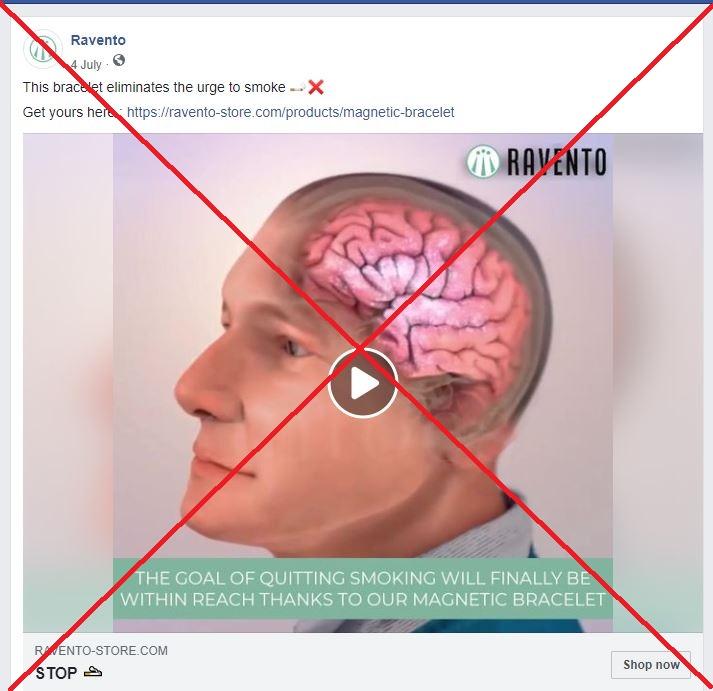
Ads falsely claim magnetic bracelets eliminate urge to smoke
"This bracelet eliminates the urge to smoke," says a July 4, 2023 Facebook post linking to an online store selling "anti-smoking magnetic bracelets."
The site claims the device uses a technique that "dates back to ancient times" in which parts of the brain are stimulated, eliminating the desire to smoke.
Similar products, which are for sale on Amazon and eBay, have been promoted on TikTok and Twitter, which is being rebranded as "X."

However, the claims are unproven.
The US Food and Drug Administration (FDA) has not approved any such product as a smoking cessation method (archived here).
"I've never heard of (this) bracelet and am unaware of any research supporting it," said Nancy Rigotti, who directs the Tobacco Research and Treatment Center at Massachusetts General Hospital, in a July 24 email.
According to the FDA, the treatments backed by research include various forms of nicotine replacement therapy -- such as patches, gums and sprays -- as well as transcranial magnetic stimulation (TMS).
TMS is performed in a medical facility with powerful magnets, often placed in a helmet. The controversial treatment, which has shown some promise in treating brain disorders and other conditions (archived here), generally involves several sessions over a few weeks.
But the bracelet advertised on social media is different -- medical experts say it is not backed by any scientific evidence.
"I wasn't able to find any peer-reviewed study on this. There is no data, period," said Michael Fiore, a professor emeritus and founding director of the University of Wisconsin's Center for Tobacco Research and Intervention.
Fiore told AFP on July 28 that most smokers are desperate to find ways to quit and often turn to unproven methods. But he urged people to try evidence-based techniques, pointing to toll-free "quit lines" and free resources available on a website from the National Cancer Institute.
Other experts agreed.
"It is important to support people who want to quit by directing them to effective tools like quit lines and approved smoking cessation treatments," said Joanna Cohen, director of the Institute for Global Tobacco Control at Johns Hopkins University, in a July 27 email.

While cigarette smoking has declined in the United States and globally, public health authorities say it remains a major problem.
More of AFP's reporting on health misinformation is available here.
Copyright © AFP 2017-2026. Any commercial use of this content requires a subscription. Click here to find out more.
Is there content that you would like AFP to fact-check? Get in touch.
Contact us
